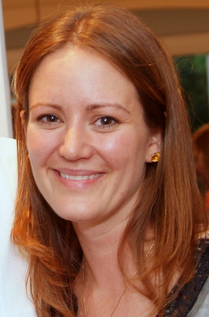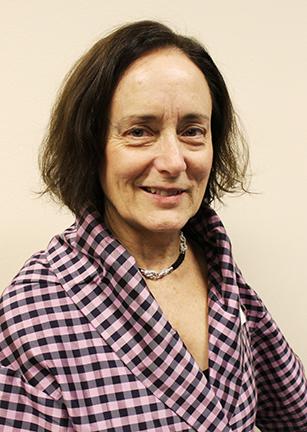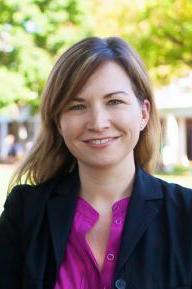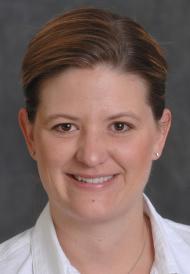War on Poverty Conference Presenters
Learn about the conference presenters and discussants
 Martha
Bailey is an Associate Professor of Economics and a
Research Associate Professor at the Population Studies Center at
the University of Michigan. She is also a Research Associate with
the National Bureau of Economic Research. Bailey’s recent
projects focus on evaluating the shorter and longer-term
consequences of Great Society programs, and include her recently
co-edited book Legacies of the War
on Poverty.
Martha
Bailey is an Associate Professor of Economics and a
Research Associate Professor at the Population Studies Center at
the University of Michigan. She is also a Research Associate with
the National Bureau of Economic Research. Bailey’s recent
projects focus on evaluating the shorter and longer-term
consequences of Great Society programs, and include her recently
co-edited book Legacies of the War
on Poverty.
 Kenneth
Chay is a Professor of Economics and Community Health at
Brown University, as well as a Research Associate with the
National Bureau of Economic Research. Among his most cited work
is his study on how Civil Rights legislation impacted African
American infant mortality in Mississippi. Chay has won several
awards for his work, including an Alfred P. Sloan Foundation
Research Fellowship and a Kenneth J. Arrow Award from the
International Health Economics Association.
Kenneth
Chay is a Professor of Economics and Community Health at
Brown University, as well as a Research Associate with the
National Bureau of Economic Research. Among his most cited work
is his study on how Civil Rights legislation impacted African
American infant mortality in Mississippi. Chay has won several
awards for his work, including an Alfred P. Sloan Foundation
Research Fellowship and a Kenneth J. Arrow Award from the
International Health Economics Association.
 Greg
Duncan is an economist and Distinguished Professor in
the Department of Education at the University of California,
Irvine. He currently serves as chair of a National Research
Council/Institute on Medicine Committee on child research, and
serves on the board of directors for many national research
committees. In 2013, he was awarded the Klaus J. Jacobs Research
Prize. Duncan’s recent research charts the relative importance of
early academic skills, cognitive and emotional self-regulation,
and health in promoting children’s eventual success in school and
in the labor market.
Greg
Duncan is an economist and Distinguished Professor in
the Department of Education at the University of California,
Irvine. He currently serves as chair of a National Research
Council/Institute on Medicine Committee on child research, and
serves on the board of directors for many national research
committees. In 2013, he was awarded the Klaus J. Jacobs Research
Prize. Duncan’s recent research charts the relative importance of
early academic skills, cognitive and emotional self-regulation,
and health in promoting children’s eventual success in school and
in the labor market.
 David
E. Frisvold is an Assistant Professor of Economics at
the University of Iowa. His research has been published in
leading economics and health policy journals and has been funded
by the Institute for Research on Poverty at the University of
Wisconsin, the Robert Wood Johnson Foundation, and the National
Institute of Child Health and Human Development. His research
focuses on childhood obesity, soft drink taxes, early childhood
education, school quality, and food assistance programs.
David
E. Frisvold is an Assistant Professor of Economics at
the University of Iowa. His research has been published in
leading economics and health policy journals and has been funded
by the Institute for Research on Poverty at the University of
Wisconsin, the Robert Wood Johnson Foundation, and the National
Institute of Child Health and Human Development. His research
focuses on childhood obesity, soft drink taxes, early childhood
education, school quality, and food assistance programs.
 Thesia
Garner is a Senior Research Economist in the
Division of Price and Index Number Research with the Bureau of
Labor Statistics, where she has served since
1984. Garner holds a Ph.D. in Consumer Economics
from the University of Maryland and an M.A. from Purdue
University.
Thesia
Garner is a Senior Research Economist in the
Division of Price and Index Number Research with the Bureau of
Labor Statistics, where she has served since
1984. Garner holds a Ph.D. in Consumer Economics
from the University of Maryland and an M.A. from Purdue
University.
 Kent
Germany is an Associate Professor of History
and African American Studies at the University of South Carolina.
He is a co-founder and co-editor of
www.whitehousetapes.org and a co-host of For The
Record, a PBS interview program on politics and history. His
most recent book is New Orleans after the Promises: Poverty,
Citizenship, and the Search for the Great Society, which
examines poverty and racism in the forty years before Hurricane
Katrina.
Kent
Germany is an Associate Professor of History
and African American Studies at the University of South Carolina.
He is a co-founder and co-editor of
www.whitehousetapes.org and a co-host of For The
Record, a PBS interview program on politics and history. His
most recent book is New Orleans after the Promises: Poverty,
Citizenship, and the Search for the Great Society, which
examines poverty and racism in the forty years before Hurricane
Katrina.
 Chloe
Gibbs is an Assistant Professor of Public Policy and
Education at the University of Virginia’s Batten School of
Leadership and Public Policy as well as the Curry School of
Education. She is an affiliated researcher with UVa’s Center
on Education Policy and Workforce Competitiveness and the Chapin
Hall Center for Children at the University of Chicago. Her recent
research examines the impact of the federal Head Start
program.
Chloe
Gibbs is an Assistant Professor of Public Policy and
Education at the University of Virginia’s Batten School of
Leadership and Public Policy as well as the Curry School of
Education. She is an affiliated researcher with UVa’s Center
on Education Policy and Workforce Competitiveness and the Chapin
Hall Center for Children at the University of Chicago. Her recent
research examines the impact of the federal Head Start
program.
 Hilary
Hoynes is a Professor of Public Policy and
Economics, and Haas Distinguished Chair in Economic Disparities
at the University of California, Berkeley. She is a Research
Affiliate for the UC Davis Center for Poverty Research and is
co-editor of the leading journal in economics, American
Economic Review. She specializes in the study of poverty,
inequality, and the impacts of government tax and transfer
programs on low income families.
Hilary
Hoynes is a Professor of Public Policy and
Economics, and Haas Distinguished Chair in Economic Disparities
at the University of California, Berkeley. She is a Research
Affiliate for the UC Davis Center for Poverty Research and is
co-editor of the leading journal in economics, American
Economic Review. She specializes in the study of poverty,
inequality, and the impacts of government tax and transfer
programs on low income families.
 Douglas
Miller is an Associate Professor of Economics at
the University of California, Davis, a Faculty Affiliate of the
UC Davis Center for Poverty Research and a Faculty Research
Fellow for the National Bureau of Economic Research. His research
examines the impact of economic forces, social policy, and the
environment on health.
Douglas
Miller is an Associate Professor of Economics at
the University of California, Davis, a Faculty Affiliate of the
UC Davis Center for Poverty Research and a Faculty Research
Fellow for the National Bureau of Economic Research. His research
examines the impact of economic forces, social policy, and the
environment on health.
 Sean Reardon
is a Professor of Education and Sociology at Stanford University
and Director of the Stanford Interdisciplinary Doctoral Training
Program in Quantitative Education Policy Analysis. He has
been a recipient of a William T. Grant Foundation Scholar Award,
a Carnegie Scholar Award, and a National Academy of Education
Postdoctoral Fellowship. His research investigates the causes,
patterns, trends, and consequences of social and educational
inequality.
Sean Reardon
is a Professor of Education and Sociology at Stanford University
and Director of the Stanford Interdisciplinary Doctoral Training
Program in Quantitative Education Policy Analysis. He has
been a recipient of a William T. Grant Foundation Scholar Award,
a Carnegie Scholar Award, and a National Academy of Education
Postdoctoral Fellowship. His research investigates the causes,
patterns, trends, and consequences of social and educational
inequality.
 Sarah Reber is
an Associate Professor of Public Policy in the UCLA Luskin School
of Public Affairs and a Faculty Research Fellow at the National
Bureau of Economic Research. Her health economics research
examines competition in health insurance markets. Her research in
education focuses on the effects—intended and unintended—of
school desegregation, the Civil Rights Act, and Title I of the
Elementary and Secondary Education Act represented.
Sarah Reber is
an Associate Professor of Public Policy in the UCLA Luskin School
of Public Affairs and a Faculty Research Fellow at the National
Bureau of Economic Research. Her health economics research
examines competition in health insurance markets. Her research in
education focuses on the effects—intended and unintended—of
school desegregation, the Civil Rights Act, and Title I of the
Elementary and Secondary Education Act represented.
 Maya
Rossin-Slater is an Assistant Professor of Economics at
the University of California, Santa Barbara. Her honors include a
Columbia Population Research Center Fellowship and a Columbia
University Economics Department Presidential Fellowship. Her
research focuses on issues in maternal and child well-being, as
well as family structure and behavior, and draws implications for
addressing the needs of disadvantaged populations in the United
States.
Maya
Rossin-Slater is an Assistant Professor of Economics at
the University of California, Santa Barbara. Her honors include a
Columbia Population Research Center Fellowship and a Columbia
University Economics Department Presidential Fellowship. Her
research focuses on issues in maternal and child well-being, as
well as family structure and behavior, and draws implications for
addressing the needs of disadvantaged populations in the United
States.
 Diane
Schanzenbach is an Associate Professor in the
School of Education and Social Policy, and a Faculty Fellow with
Institute for Policy Research at Northwestern University. She is
also a Faculty Research Fellow with the National Bureau of
Economic Research, and serves as Visiting Scholar for Federal
Reserve Bank of Chicago. Her recent research investigates the
impact of school accountability policies like the Federal No
Child Left Behind Act and school reform policies on student
performance and other outcomes.
Diane
Schanzenbach is an Associate Professor in the
School of Education and Social Policy, and a Faculty Fellow with
Institute for Policy Research at Northwestern University. She is
also a Faculty Research Fellow with the National Bureau of
Economic Research, and serves as Visiting Scholar for Federal
Reserve Bank of Chicago. Her recent research investigates the
impact of school accountability policies like the Federal No
Child Left Behind Act and school reform policies on student
performance and other outcomes.
 James
Sullivan is an Associate Professor of
economics at the University of Notre Dame, and a research
affiliate of the National Poverty Center at the University of
Michigan. His research examines the consumption, saving, and
borrowing behavior of poor households in the U.S., and how
welfare and tax policy affects the well-being of the
poor. His research has been supported by grants from the
Smith Richardson Foundation, the Annie E. Casey Foundation and
the National Bureau of Economic Research.
James
Sullivan is an Associate Professor of
economics at the University of Notre Dame, and a research
affiliate of the National Poverty Center at the University of
Michigan. His research examines the consumption, saving, and
borrowing behavior of poor households in the U.S., and how
welfare and tax policy affects the well-being of the
poor. His research has been supported by grants from the
Smith Richardson Foundation, the Annie E. Casey Foundation and
the National Bureau of Economic Research.
 Gavin
Wright is the William Robertson Coe Professor of
American Economic History at Stanford University and a Senior
Fellow at the Stanford Institute for Economic Policy Research.
His books include Sharing the Prize: The Economics of the
Civil Rights Revolution in the American South (2013) and
Slavery and American Economic Development (2006). His
current research interests include the economics of the Civil
Rights revolution in the American South.
Gavin
Wright is the William Robertson Coe Professor of
American Economic History at Stanford University and a Senior
Fellow at the Stanford Institute for Economic Policy Research.
His books include Sharing the Prize: The Economics of the
Civil Rights Revolution in the American South (2013) and
Slavery and American Economic Development (2006). His
current research interests include the economics of the Civil
Rights revolution in the American South.










